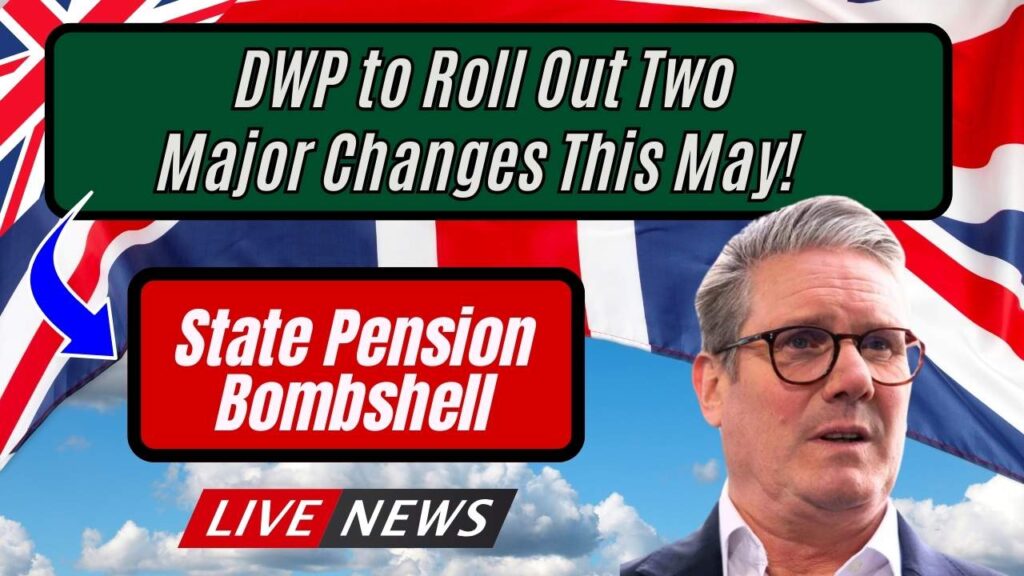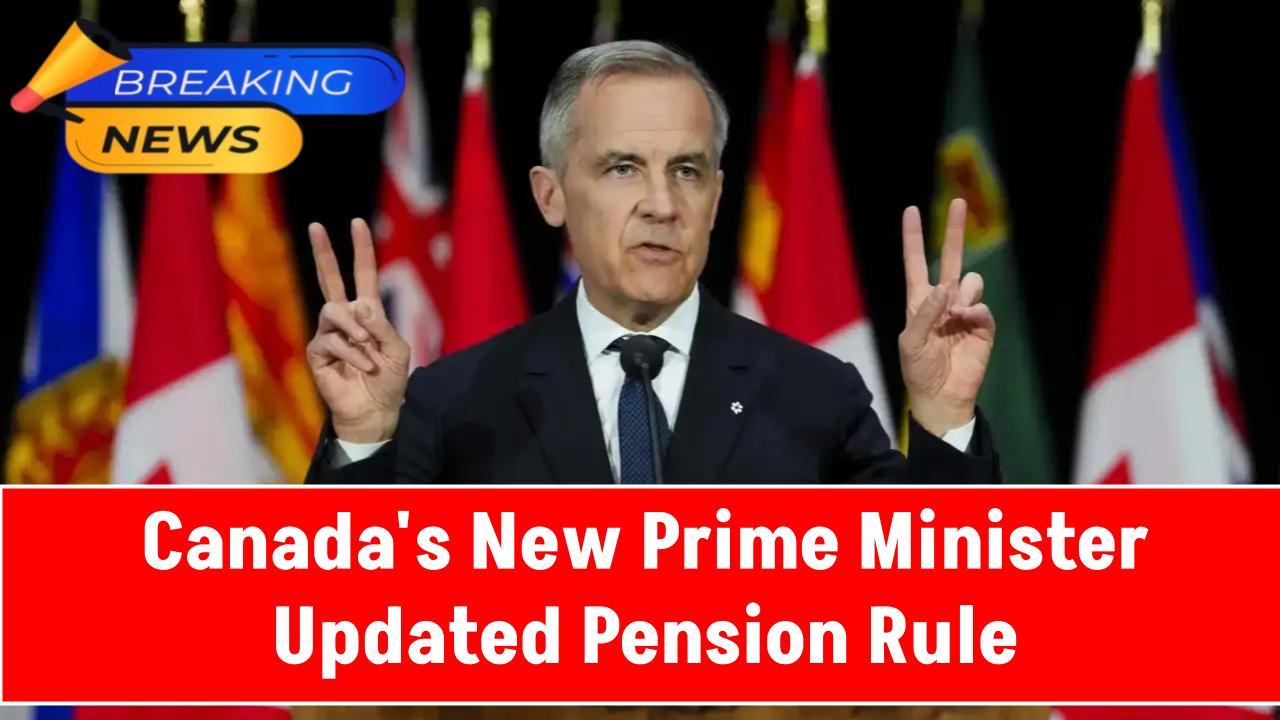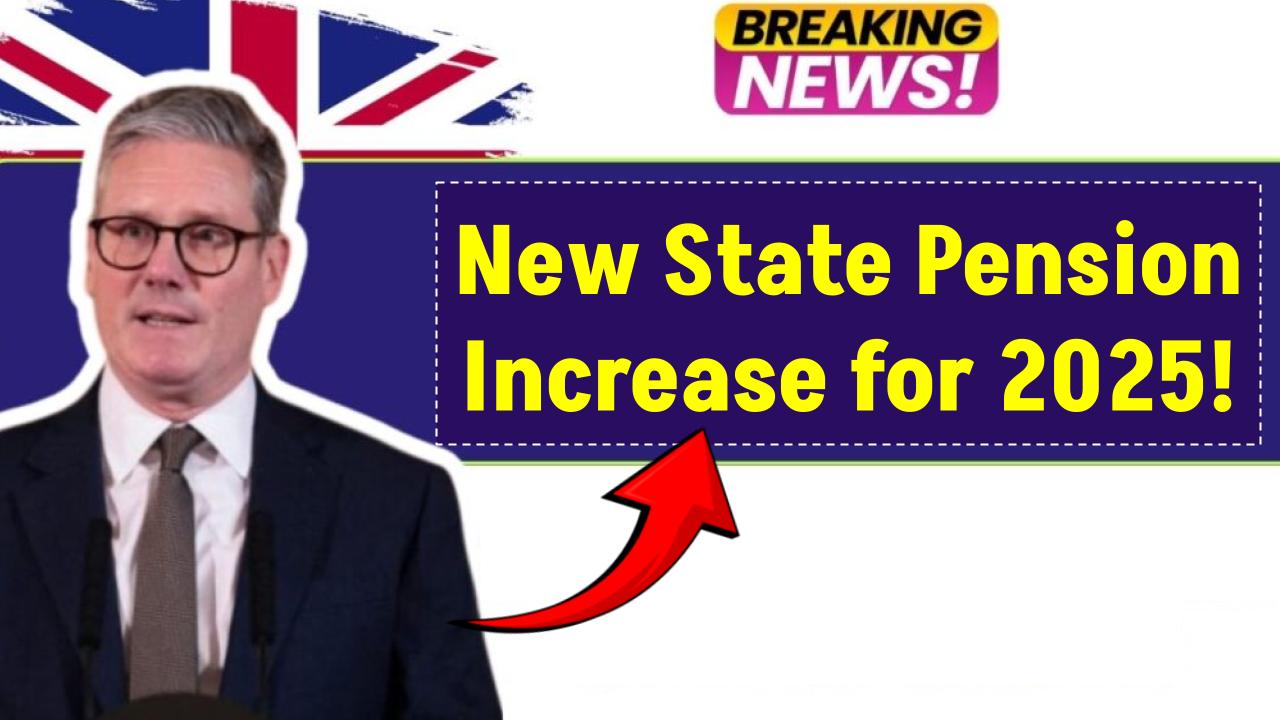State Pension Bombshell: DWP to Roll Out Two Major Changes This May!
State Pension Bombshell – If you receive the State Pension or know someone who does, May 2025 is bringing two major changes you need to know about. The Department for Work and Pensions (DWP) has announced important updates that will impact when pensioners are paid and how much they’ll receive. Understanding these changes can help you plan better — and avoid any nasty surprises!

In this article, we’ll walk you through everything you need to know: what’s changing, when it’s happening, and what you can do to make the most of it. Let’s dive in!
State Pension Bombshell
| Key Points | Details |
|---|---|
| Changes to Payment Dates | Due to May bank holidays, early payments will be made on 2 May and 23 May 2025. |
| State Pension Rate Increase | From April 2025, State Pension rises by 4.1%. |
| New Weekly Rates | New State Pension: £230.25/week; Basic State Pension: £176.45/week. |
| Triple Lock Guarantee | Pension rises are tied to inflation, wage growth, or 2.5%, whichever is highest. |
| Impact on Budgeting | Early payments mean longer gaps before next pension dates. |
| Future Planning Tip | Watch for bank holidays in upcoming months to adjust finances. |
| Official Sources | UK Government State Pension Information |
The State Pension changes in May 2025 bring both challenges and opportunities. While early payments require some careful budgeting, the 4.1% pension increase offers welcome relief to millions. Staying informed and planning wisely will ensure that you navigate these changes smoothly and enjoy the benefits fully.
Additionally, being proactive about other financial support available can help maximise your retirement income and provide greater peace of mind.
What Are the Two Major Changes to State Pension This May?
1. Early State Pension Payments Due to Bank Holidays
May 2025 is packed with two bank holidays — the Early May Bank Holiday and the Spring Bank Holiday. Since banks will be closed on these dates, the DWP has decided to issue State Pension payments earlier to ensure pensioners are not left waiting.
Here’s the updated payment schedule:
- If your payment was due on Monday, 5 May 2025, you will now receive it on Friday, 2 May 2025.
- If your payment was scheduled for Monday, 26 May 2025, you’ll get it on Friday, 23 May 2025.
Why is this happening? Public holidays mean banking systems shut down, so scheduled payments can get delayed. Rather than risking late payments, the DWP advances the deposits.
Who does this affect? Everyone expecting a State Pension or certain benefits like Pension Credit or Attendance Allowance on these days will be impacted.
What should you do? Make sure you budget smartly. Although you’ll receive money earlier, the gap until the next payment will be slightly longer.
Tip: Mark these new payment dates on your calendar and adjust your bill payments accordingly to avoid overdrafts.
2. State Pension Rate Increase from April 2025
The second — and probably the more exciting — change is the increase in the State Pension amount.
Here’s what you need to know:
- New State Pension rises from £221.20 to £230.25 per week (around £11,973 per year).
- Basic State Pension (for those who reached State Pension age before April 6, 2016) increases from £169.50 to £176.45 per week (around £9,175 per year).
Why is this happening? Thanks to the Triple Lock Guarantee, the State Pension must increase each year based on:
- Inflation (measured by CPI),
- Average earnings growth, or
- A minimum of 2.5%.
Whichever of these three is highest sets the new pension rise. This year, inflation was the driving force.
Impact on Pensioners This change will help cushion retirees against the rising cost of living — crucial at a time when essentials like energy, groceries, and rent continue to become more expensive.
Example: If you currently receive £221.20 per week, you’ll see a boost of about £9 more every week. Over a year, that’s almost £470 extra — not a small sum!
Understanding the Triple Lock: Why It Matters
The Triple Lock is a government promise that ensures pensions keep pace with the cost of living.
- Introduced in 2010, it was designed to protect retirees’ income.
- Without it, pension increases could lag behind rising prices, causing financial hardship.
- The 4.1% rise this year shows the government’s commitment — but debates about the sustainability of the Triple Lock continue.
For now, pensioners can breathe easy knowing their income is protected for another year.
Note: Economic challenges or policy changes in the future could potentially alter the Triple Lock framework.
How to Check If You Are Eligible for the State Pension?
Not everyone gets the same amount automatically. To qualify:
- You generally need at least 10 qualifying years on your National Insurance record to get anything.
- For a full new State Pension, you usually need 35 qualifying years.
You can check your personal situation online through the UK Government State Pension Forecast Service.
Tip: Even if you’re years away from retirement, checking now allows you time to make voluntary National Insurance contributions if needed.
Practical Advice: How to Make the Most of the Changes?
1. Review Your Budget
Early payments mean you’ll need to plan your finances carefully for May. Don’t overspend, thinking you’ve got extra — it’s just an earlier deposit.
Tip: Stretch your pension to cover until the next scheduled payment.
2. Update Your Financial Plans
With the increase in pension income, now is a good time to revisit your budget or even consider saving a little extra.
Tip: Consider setting up a standing order to automatically save the pension increase amount every month.
3. Plan Ahead for Future Bank Holidays
The DWP often changes payment dates around Christmas, Easter, and bank holidays. Stay aware and plan ahead to avoid cash flow problems.
4. Explore Additional Benefits
Many pensioners are also eligible for extra support such as:
- Pension Credit
- Winter Fuel Payment
- Free NHS prescriptions and eye tests
Check the official UK Government benefits site to see if you qualify.
FAQs About State Pension Bombshell
Q1: Will my payment always come early during holidays?
Only if your regular payment date falls on a bank holiday. Otherwise, it will be paid on the normal due date.
Q2: Do I need to apply for the increased pension amount?
No, the increase is automatic. If you’re eligible for State Pension, you will see the new amount reflected from April 2025.
Q3: What if I don’t get my payment on the rescheduled date?
If your pension doesn’t arrive, contact the DWP’s Pension Service immediately or check through your online account.
Q4: Will other benefits be paid early too?
Yes, many benefits, including Pension Credit, Attendance Allowance, and others, will also be paid early if their due dates clash with bank holidays.
Q5: Is the Triple Lock guaranteed for future years?
The government has promised to keep it for now, but future decisions could depend on economic conditions and political debates.
Q6: Can I get more by deferring my State Pension?
Yes! If you defer claiming your State Pension, you could receive extra money. Typically, your pension increases by 1% for every 9 weeks you defer (roughly 5.8% for a full year).








